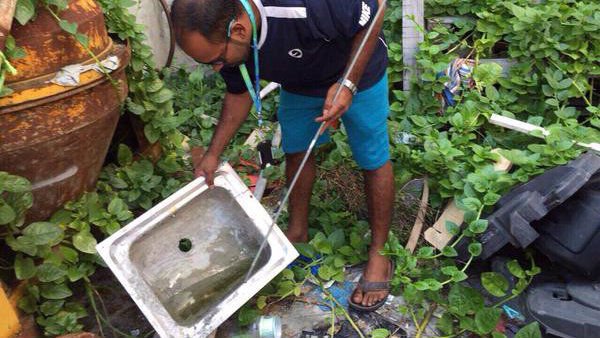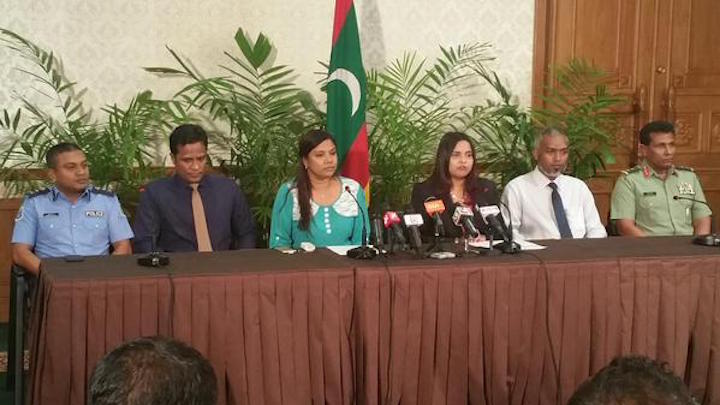Hundreds of volunteers and staff at state owned companies and government offices began walking door-to-door in the capital Malé this morning with a checklist of activities to eliminate mosquito-breeding sites. At least four people have died this year from dengue fever,a mosquito-borne disease.
The Health Protection Agency (HPA) is advising the public to empty stagnant water from containers, throw trash into dustbins, and keep containers sealed to prevent water from accumulating.
“We would like to appeal to the public to take up dengue control as an individual responsibility. We are taking measures to eliminate mosquito breeding sites in public spaces, but we do not have access to households,” said Asma Ibrahim, director at the HPA.
#DengueControl: @MoH_mv, Ministry of Health Team at Door-to-Door campaign for #DenguePrevention. pic.twitter.com/lowk71o7ET
— HPA Maldives (@HPA_MV) July 4, 2015
Of the 475 cases reported this year, some 180 cases were reported in Malé. Schools have been closed indefinitely to control the spread of dengue. Deaths include a pregnant woman and a migrant worker.
Dengue is now endemic in the Maldives. Prevention and control of the illness solely depends on effective mosquito control measures. Symptoms include high fever, headache, muscle and joint pain.
The HPA has also advised wearing clothes that hide the skin, using mosquito repellants, and keeping doors and windows closed during dawn and dusk.
The agency has stressed the importance of cleanliness and hygiene to prevent the spread of the disease and advised seeking medical assistance if a fever persists for more than three days
An outbreak typically lasts six weeks, Asma said.
#DengueUpdate: Dengue status (till 3rd July 2015. @HPA_MV @MoH_mv @PSMnewsmv @tvmaldives @sunbrk @haveeru @raajjemv pic.twitter.com/736whboSQX
— HPA Maldives (@HPA_MV) July 3, 2015
The virus is transmitted to humans through the bites of infected female Aedes aegypti mosquito. It’s peak biting periods are early in the morning and in the evening before dusk.
The Housing Ministry is fogging public areas with insecticides and has requested construction companies to eliminate mosquito breeding sites from construction sites.
#DengueControl: Fogging in Male', to reduce the population of adult mosquitoes. @HPA_MV @MoH_mv @HousingGovMv. pic.twitter.com/PjSnqfyLtL
— HPA Maldives (@HPA_MV) July 3, 2015
The HPA has meanwhile launched a 24-hour ‘dengue hotline’ and urged the public to call or text 7548221 for information.
A severe outbreak of dengue in 2011 saw a record high of 12 deaths. There were 2909 reported cases of dengue that year. In 2006, 10 people died of dengue.
There are four known types of the dengue virus, and the strains responsible for the illness wax and wane cyclically. In regions where dengue is common, one or two strains tend to dominate for two to three years at a time.
People in the region appear to acquire immunity for those strains and the number of cases will dip for a few years before another strain takes over and infections flare up again.
Dengue fever cases worldwide have climbed dramatically since the 1960s, with some 50 million people infected annually.

